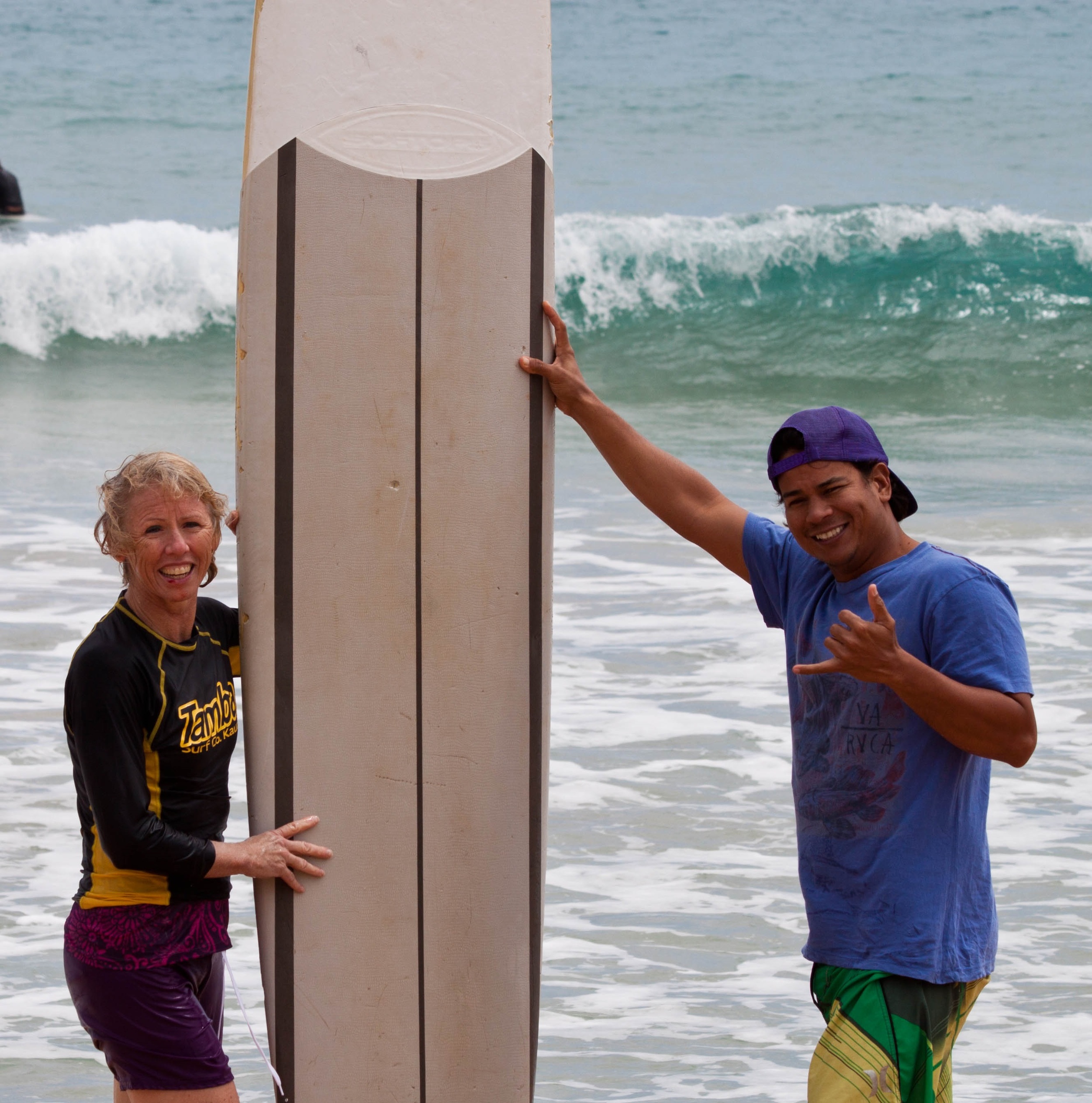Good Teaching
/(You may have received this already. But I just got my website back from the hackers and I was too excited not to send out this journal, again.)
Wednesday morning we drove to Kapaa (as in the movie, Honeymoon in Vegas, http://tinyurl.com/cr5scml) to Kealia Beach to meet our old friend, Nephi, for surfing lessons. His company, named, simply enough, Learn to Surf, was featured in The Ultimate Kauai Guide Book that we used to make almost all our vacation decisions.
Afterward, Cyndi and I talked about Nephi. We took lessons from him on our last visit and it was no accident we called him again for this trip. I scribbled a list of things that, not only made him a good teacher, but also a good role model for us as teachers and mentors.
First, Nephi gave just enough detail to get you started, but not enough to confuse you. Too often we teachers talk too much. We think we have to tell more than we actually do.
I remember taking six guys to a Wild at Heart Boot Camp in 2006, and forcing myself to keep my mouth shut. I had already attended Boot Camp twice, and my tendency was to lead my friends through by giving advice and pointing out the cool parts. But they deserved the chance to learn their own lessons and have their own breakthroughs. They didn’t need me to hold their hand. I had to continually remind myself to leave them alone and let them find what they needed instead of adding my own teaching on top of what the Boot Camp speakers were saying. This was especially hard since my son and my son-in-law were among the group and I had a lot invested in those two relationships.
As teachers, we need to learn how little we can share and still keep the lesson focused on the right things. Nephi did that. He gave just enough instruction to move us to the next step.
The first thing he taught us was how to pull the surfboard tail-first into the ocean with both hands so the waves wouldn’t turn you around while walking out into the surf. Then he showed us how to lie down on the board and get up to our feet. He led everyone through a few practice rounds there on the beach before taking us out into the water. Any more detail would have been too much to remember, and probably made the experience even scarier.
Also, Nephi didn’t feel the need to pump us up, as in “Are you ready to surf big today?” “Who’s feeling brave?” “Are there any big-wave surfers around here?” None of that.
Personally, I don’t enjoy exercise classes when the instructor keeps trying to pump me up. I’ve already decided to come to the class, so I don’t need additional motivation. I often think the instructor is hoping we will holler back and make a lot of noise merely to satisfy their own ego.
But Nephi was calm and knowledgeable, and you simply wanted to trust him. He sounded like he had done this many times before, like he knew how to help, and that he genuinely wanted everyone to get up on their boards and have a great experience surfing.
Another thing - even though some of us beginning surfers weren’t as young or as fit or as flexible or strong as the others, Nephi never even hinted, “Oh, you are going to have a tough time,” or “I’m not sure if you’ll be able to do this.” He taught the class flat, with the same positive expectations for everyone.
Not only that, but he had reasonable expectations. First, learn to stand up on the board. After that, we’ll see how it goes. For those of us who took longer to catch on, he offered alternative moves, easier steps for getting up and standing on the board.
Finally, rather than scold us for mistakes, such as “You are too far back,” he tended to make positive suggestions, like “try moving a little forward and see what happens.” As a result, you never felt like you were doing it wrong, but only that you needed a little fine-tuning.
Like most fun activities, surfing comes with its own risk. Cyndi’s board flipped on her first run and busted her lip. Of course, she didn’t stop surfing. She kept going and going, even though she was bleeding. Nephi said, “They don’t get any tougher than her.”
I hope I can teach life lessons like Nephi taught surfing. Teachers don’t get much better than him.
“I run in the path of Your commands, for You have set my heart free.” Psalm 119:32
Find me at www.berrysimpson.com, or www.twitter.com/berrysimpson, or http://www.facebook.com/berry.simpson






